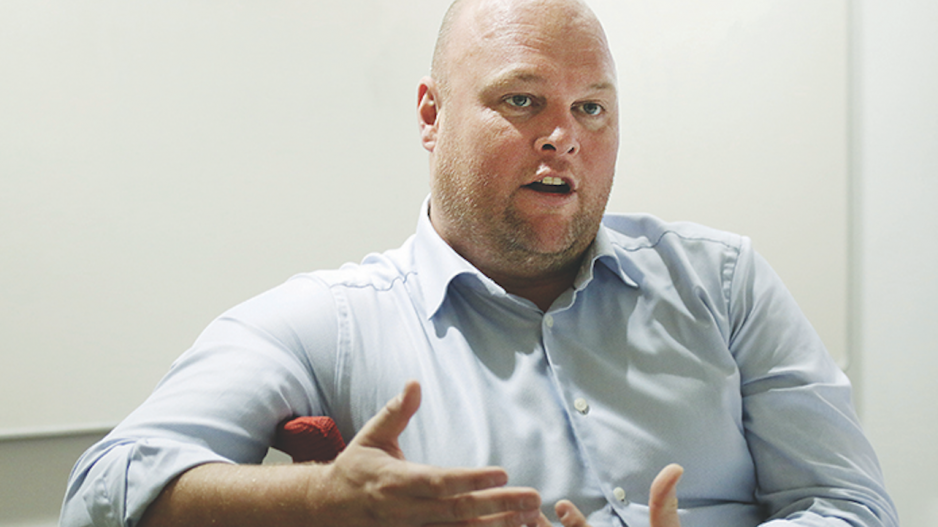Jack Newton originally envisioned the legal community, known for its affection for face-to-face proceedings and printing mountains of paper, transitioning towards more modern technology over the next five to 10 years.
“Lawyers, with the COVID-19 situation, are having to accelerate many of those changes and make them happen in the space of five to 10 days,” the CEO of Burnaby-based tech company Clio (Themis Solutions Inc.) told Business in Vancouver.
Clio develops software that reduces the amount of time and money lawyers must spend on administrative tasks.
The company raised US$250 million in a Series D funding round announced last September.
On Monday (March 23) Clio announced the launch of a US$1-million relief fund for those in the legal community struggling to adjust to changes in business brought on by COVID-19 as courts shut down and public health officials beg people to stay inside.
“That reality has changed overnight to one where lawyers are needing to collaborate with their colleagues within their law firm in a completely new way and a highly distributed way, and they also need to meet with their clients in a new and distributed way,” Newton said.
The initiative sees Clio providing tools, resources and educational material necessary to help lawyers understand what the transition the transition to staying at home means for business, while financial relief will come in the form of US$1 million in discounted or free services.
“We’re going to be aggressively investing in pitches and initiatives from organizations that can have one-to-many impact. And what I mean by that is, if they’re developing resources, maybe it’s a webinar, maybe it’s an e-book, maybe it’s an online course that can help many lawyers navigate this change, this is something we will invest in aggressively because we can amplify the impact of that investment,” Newton said.
Direct financial assistance will be determined on a case-by-base basis.
But if, for example, a well-capitalized law firm reached out to Clio for some of that support, Newton said he would implore the firm to join in with the initiative to help those in need.
While it’s still uncertain how long the impacts of COVID-19 will linger, Newton said the pandemic will serve as a catalyst for change.
“It’s forcing many lawyers to try things that they may have never tried or would have only tried many years in the future,” Newton said.
“We’re seeing even the most slow-moving and most conservative institutions … like the courts finally having to adapt to a world where people can’t make in-person court appearances. And judges will be facing a reality and maybe realizing that they can effectively render a verdict over a zoom call or a telephone call.”
Meanwhile, Vancouver-based legal-tech startup Qase Inc. has seen a spike in interest from B.C. lawyers interested in using the company’s online legal services platform, according to CEO Dan Zollmann.
Qase got its starting matching clients with appropriate lawyers by connecting them through the platform that asks people about their legal questions before allowing them to book a free consultation.
“COVID-19 has accelerated rollout of our both Canadian and U.S.-based partnerships,” Zollmann said in an email.
“Through a partnership with Access Pro Bono, we have 1,700 B.C.-based lawyers committed to moving into Qase so they can receive virtual referrals from anywhere in B.C. We have similar partnerships underway in California with 900 lawyers so far committed.”
He added that the pandemic is set to “completely transform” law and the legal services industry, which has otherwise been hampered by institutional inertia.
“Our justice system must adopt online tools and technologies or else thousands of Canadians will no longer have access to justice,” Zollmann said.




